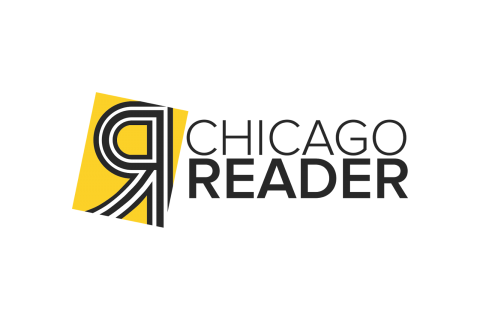Chicago Reader: Third Coast Percussion rebuild Jlin’s experimental footwork by hand

Published on May 9, 2022
by Philip Montoro | Share this post!
“Jlin’s mutable tracks…translate beautifully to an acoustic setting.”
I love Third Coast Percussion—I ranked their 2018 release Paddle to the Sea number one on my list of the best Chicago albums of the 2010s—and I’m a big fan of Jlin. So when I heard that TCP had commissioned music from my favorite experimental footwork producer, I started counting down the days till they’d get a recording out. It took a couple years, but the wait is over: on Friday, May 13, TCP release their new album, Perspectives (Cedille), whose centerpiece is a seven-movement, half-hour suite by Jlin called Perspective. She wrote the suite using software, never creating a notated version, and then TCP worked with her to develop an arrangement, searching through their vast collection of instruments to take optimal advantage of their dazzling variety of sounds, densities, and energies. Jlin’s mutable tracks—sometimes brooding and severe, sometimes frenetic and exhilarating—translate beautifully to an acoustic setting. When their programmed layers are played by hand, they lose the superhuman bass detonations that footwork accomplishes electronically, but they gain new dimensions in physical space. Jlin excels at stacking rhythms, pitches, textures, and metabolisms to create the impression of huge three-dimensional volume—her music towers to airless heights over thundering depths, and TCP’s lively, rigorous performances preserve its mind-boggling sense of scale even as they render its sounds literal and tangible. Perspective combines explosive cacophony, taut negative space, microscopically tight gestures, glassy shimmers, slashing spasms that tangle with relentless ostinatos, and the occasional slamming, sashaying backbeat. The final movement, “Embryo,” adapts a track that appears on Jlin’s 2021 EP of the same name, providing a fun chance for an A-B test.
Five movements of Perspective will form the heart of the program at Third Coast Percussion’s first in-person Chicago concert of 2022. Part of the pleasure of seeing this kind of music played live is the chance to connect every element in its dizzying kaleidoscope of sounds to a concrete source. TCP’s performance video for the movement called “Derivative” is edited pretty briskly, but I can spot vibraphone, cowbell, woodblocks, flexatone, tambourine, a large spring, muted button gongs, a squeaky toy with multiple plastic horns, some sort of crank ratchet or cog rattle, a devil chaser (a buzzing cut-bamboo striking stick, also called a koplok), metal bowls and pots half-filled with water, and of course drums and cymbals of every conceivable size and timbre—including one cymbal cut into a long, dangling vertical helix.
The program also features two other compositions from the new album: a percussion arrangement of Philip Glass’s 1988 solo piano piece Metamorphosis I (by Peter Martin of TCP) and the Chicago premiere of Danny Elfman’s Percussion Quartet, written for TCP at Glass’s request. (The remaining composition on Perspectives is Rubix, a three-movement collaboration between TCP and Flutronix, aka flutist-composers Nathalie Joachim and Allison Loggins-Hull. It couldn’t be adapted to the flutists’ absence.) Glass’s piece is lush and meditative, foregrounding varying elements of its mesh of repeated patterns against a steady, lyrical chord progression, while Elfman’s retains some of the character of his scores for 80s and 90s Tim Burton movies: playful, spooky, surging, and dramatic. Lastly, the concert includes works from two other recent TCP albums: “Fields” by Devonté Hynes, aka Blood Orange (from 2019’s Fields), and “The Hero” by Clarice Assad (from 2021’s Archetypes, rearranged here by TCP’s Robert Dillon because Clarice and her father, Sérgio, won’t be present to play the piano and guitar parts).

